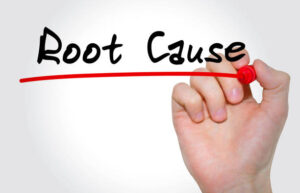Racket Feelings (Emotional Racketeering)

Have you ever been so angry that you started laughing instead of crying? Do you find yourself so joyful, happy, and peaceful that it makes you cry? Such are examples of emotional racketeering.
WHAT IS RACKETEERING?
Racketeering is dishonest, underhand, and fraudulent business dealings. It is a form of extortion, e.g., conman activity, well-organized and illegal schemes to get profits.

Source: Istock Images
EMOTIONAL RACKETEERING
As much as the name racketeering has a negative connotation, emotional racketeering isn’t necessarily negative. The root word shows you that racketeering is misrepresenting what is happening/ what you are feeling.
Emotional racketeering is showing non-authentic displays of feelings/emotions, thus can be conscious or unconscious. Most of the time, you aim to get an underhand advantage against someone.
Undoubtedly, emotional racketeering can be a form of emotional blackmail and manipulation. As a result, the response is an unfit reaction to what you are experiencing. If you’ve experienced this, please consult your therapist to help you deal with your emotion as it is instead of showing inauthentic ones.
EXAMPLES OF EMOTIONAL RACKETEERING

Source: Istock Photos
Manipulation
-
Tantrums
It is one of the broadest forms of deception of feelings. It starts at a very early age, and one way to do that is by throwing a tantrum. Have you ever thrown a tantrum either as a child or an adult?
As a child, your parent refuses to buy you something, so you embarrass them by throwing a tantrum, and since they don’t want to draw attention, they give you what you want so that you keep quiet. At that age, it is an unconscious thing, but it works. Without a doubt, you force their hand by biting into a weakness.
As a parent, you withhold basic needs out of anger because your child didn’t do things your way. The lack forces your child to do things your way and denies them the freedom to choose
Between spouses, one partner can yell at the other, drawing attention to them and forcing the other to drop an issue or accept responsibility to quiet down the other person. As I mentioned, it can be intentional or not.
Imma let you be your judge; have you ever thrown a tantrum? Was it intentional or unintentional?
-
Ultimatums
Ultimatums are statements of terms which, when not obeyed or followed, will result in a breakdown of relations and unpleasant consequences. It is a silent type of manipulation and is very common in relationships. There is a difference between this and a boundary.
A boundary is where you say that if you break ABC, here are the consequences. They protect you and others hence enhance relationships. On the other hand, a condition is you either do ABC; if you don’t, I will do DEF. It is to protect yourself and has very little to do with others/the other person.
An ultimatum threatens someone’s freedom and takes away their choice. When setting them, you don’t consider what the other person wants. You look out for yourself. It is a type of defense mechanism.
Finally, it looks like a form of love, but when you examine it keenly, it is emotional manipulation into someone doing what you want.
-
Trapping

Image: Istock Photos
Trapping is cornering someone into being with you/doing something you want since it forces radical acceptance. It is common for dating couples to compel each other to ‘stay together.’ It can happen when you (a man) ensure you impregnate a woman or vice versa so that you stay together.
-
Crying
Crying can be used to manipulate someone. You (a woman) can use your tears to manipulate someone into letting go of an issue they should address because of your emotions. Additionally, this happens by using crocodile/fake tears when it is unnecessary to exaggerate the degree of hurt you are experiencing. These are examples of emotional racketeering.
Have you used your tears to do this, consciously or unconsciously? Let us know in the comments.

Image: Getty Images
Opposite Emotions
-
Anger instead of fear/worry
This form of emotional racketeering is quite common with parents/spouses or people in relationships. Your child/spouse comes home later than usual, and you’ve tried to reach them on the phone to no avail, so you are waiting at home, worried sick about their welfare.
Furthermore, anxiety causes insomnia and uneasiness, among other negative things. Let’s spice things up a bit; there are ongoing ‘maandamanos’ (demonstrations) that are not peaceful.
A few hours in, they walk in, looking undisturbed; in fact, it seems like they were having fun wherever they were, and you were worried sick about their welfare. Immediately after realizing they are okay and safe, you become so angry at them.
Instead of expressing your worry, anxiety, and fear, you yell at them and probably give them silent treatment. Essentially, you lash out at them and become furious, yet you are worried/afraid.
-
Shutting down instead of expressing hurt
Another example of emotional racketeering is shutting down instead of expressing hurt/frustration/disappointment. It happens a lot when you’ve received unexpected or shocking news.
Losing a loved one or discovering a deep betrayal can lead to shutting down because of unprocessed feelings. Your loved one may tell you something hurtful to insult you, and you pretend you weren’t hurt by what they said. It can be a form of learned helplessness instead of dealing with your pain.
-
Laughing instead of crying

Source: Getty Images
Cyberbullying is more common in this generation due to social media and the world setup. Research done on university students that commit cyberbullying in Kenya shows that 49.7% of people have cyberbullied someone (Ndiege, et al.) Consequently, you may turn to humor or laughter to deal with it.
It becomes a coping mechanism instead of dealing with the emotion of hurt and showing people that they can get to you. You can create videos to laugh at the hateful comments, but you know that they hurt you.
What other opposite emotions have you used instead of the ones you feel?
ROOT OF “RACKET FEELINGS”

Source: Istock photos
Racket feelings are inauthentic feelings about a situation. As you’ve read about the examples of emotional racketeering, they manifest differently from what you feel.
Transactional Analysis theory (Berne, 1958) deals with four major feelings. They include joy, fear, anger, and sadness. When these feelings are misrepresented and not used as they should, they aren’t authentic, therefore, are racket feelings.
Where do these feelings come from?

Getty Images
-
Dysfunctionality in upbringing
First, as a child, your organismic self is influenced by your immediate environment. Growing up in a dysfunctional family affects how you perceive and deal with emotions. Have you ever been seriously beaten by your parent and told not to cry or you will face more punishment?
Are these words familiar, “sitaki kuskia sauti inatoka kwa mdomo yako” you loosely translate to “I don’t want to hear you crying” It’s all fun and games; however, such a threat communicates that there are consequences to expressing your emotions. Therefore you unlearn how to express your feelings and learn to ‘harden.’ Consequently, hardening grows into racketeering as you grow.
Operant Conditioning talks about Reinforcers (B.F Skinner, 1938). If you receive punishment for expressing your emotions, you stop showing them. It is common in all kinds of dysfunctional spaces. Since the feelings exist, you learn to pivot them into something else, as seen in the examples of emotional racketeering.
As you become aware of such a dysfunctional upbringing, seek help through therapy so that you don’t carry these things forward and affect your generation.
-
Societal Standards
Growing up living by societal norms like men do not cry; puts a lot of men at the mercy of racket feelings. When you are hurt, instead of processing your emotions, you express a different one, like anger, which is domineering.
Being hurt shows weakness, and people bully you for it. Expressive men are not considered “man enough,” yet they feel pain from within. For this reason, they view anger as an emotion that connotes strength, and therefore, many men turn to violence and unhealthy coping mechanisms.

Source: Istock photos
DEALING WITH RACKET FEELINGS
You deal with emotional racketeering by acknowledging and naming what you feel. Racket feelings are deceptive and, therefore, will have the wrong remedy.
To put this into context, if you have a stomach ache and when you go to the hospital, you tell your doctor that you have a headache, what do you think will happen? Will the doctor prescribe the right medication for your problem?
Similarly, your authentic feelings must be; named and acknowledged as they are, not racketeered. If you are sad, deal with sadness. When hurt, handle the pain. Ensure you do not call your pain; anger issues, yet it is a racket feeling, not the real one.
As a result, you have unending patterns of anger outbursts (headaches), yet you should be dealing with hurt, pain, and abandonment (stomachaches). You never tackle the real issue.
CONCLUSION
In brief, some forms of emotional racketeering are unconscious, you expose them as underlying issues. In turn, this tackles the main problem. Others are conscious, and through self-awareness, you learn how to minimize them a step at a time.
You can do more than you think you are. You can change your life and your generation.
Are you wondering how to overcome learned helplessness?
Writer,
Sheila K. Muli










I never knew about most of this, I have enjoyed reading and learning so much. Keep up the good work, God is working!
[…] blackmail, cyberbullying, and any other forms of abuse that I have talked about in my article on emotional racketeering can cause this […]